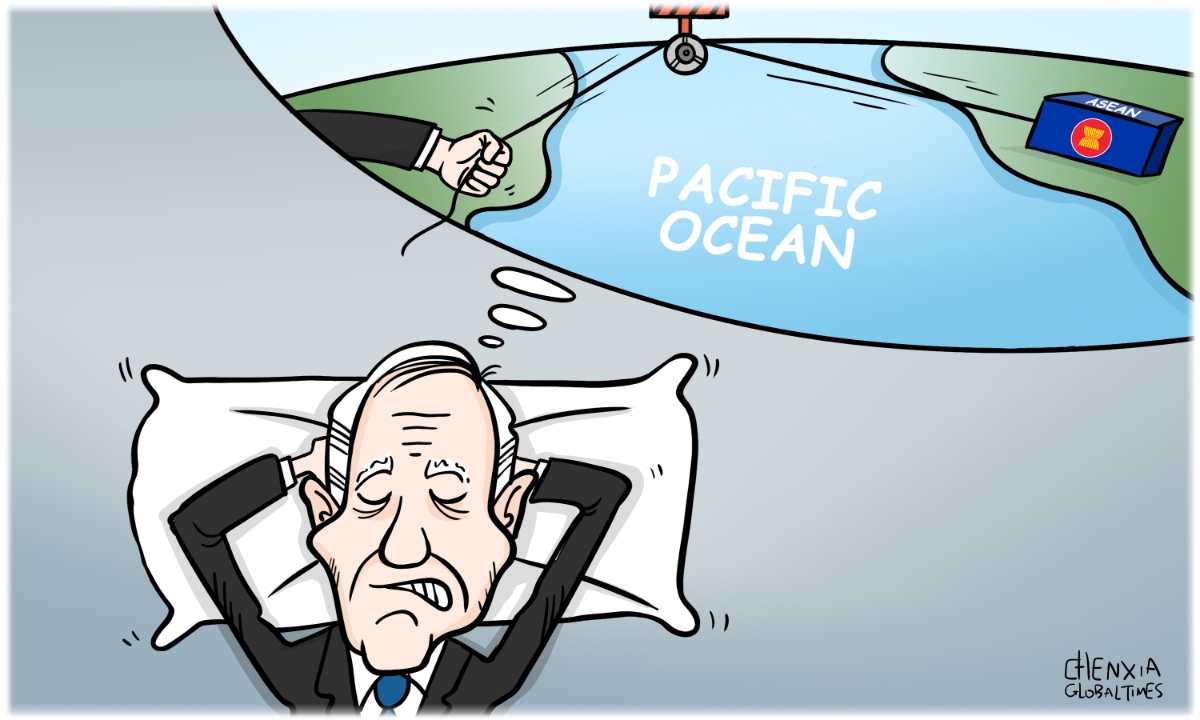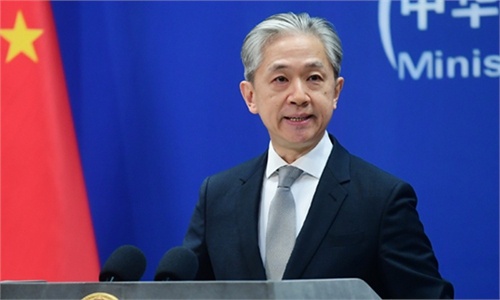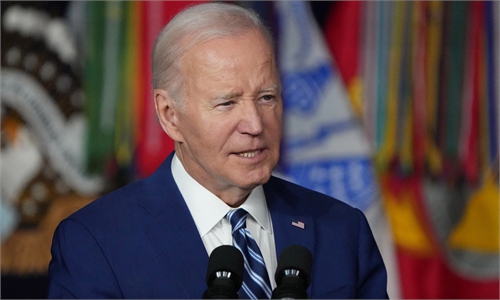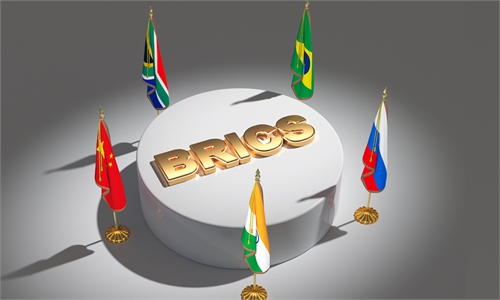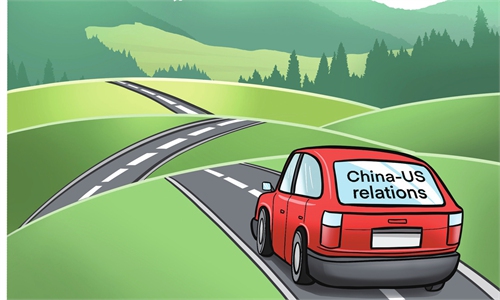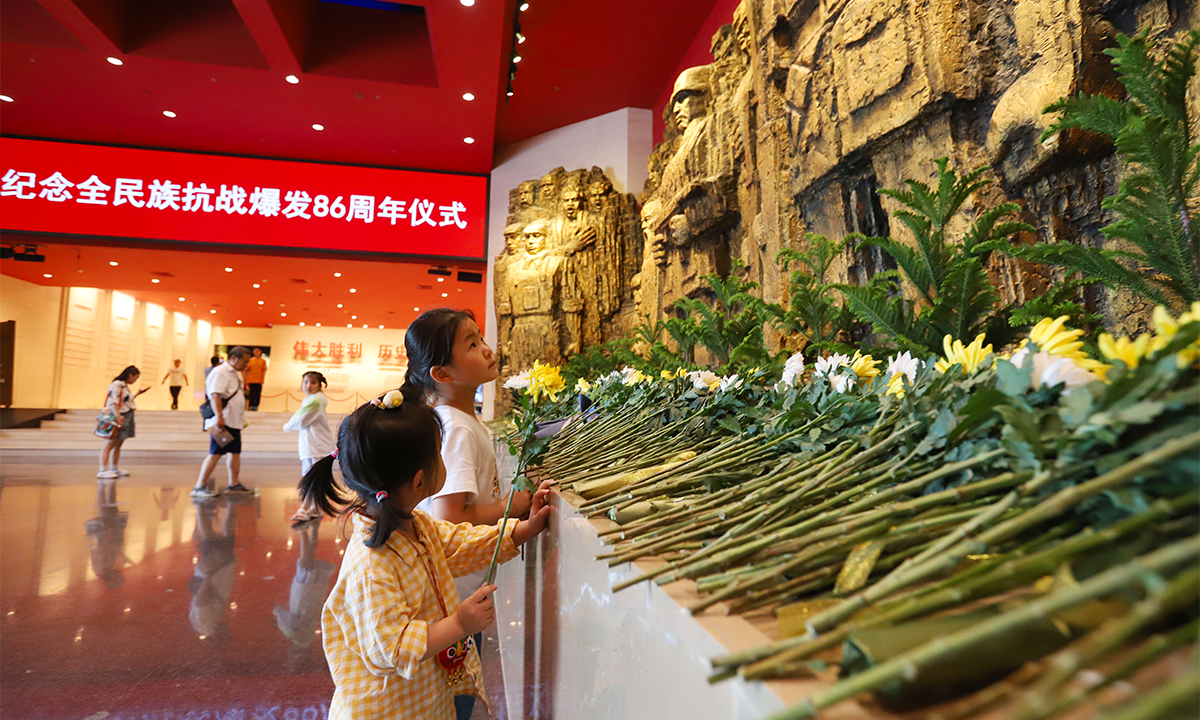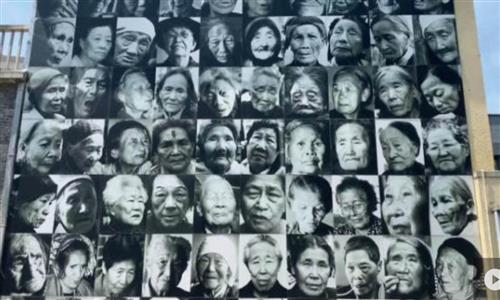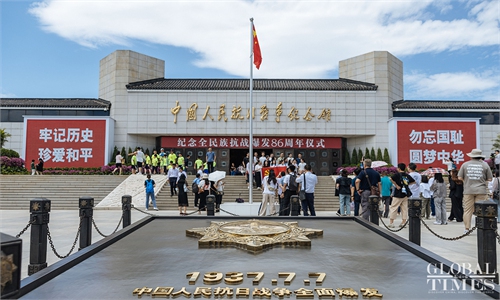An aerial view of the proposed site for the future LRT station which is beside the Sia Boey Urban Archaeological Park near Komtar.
AFTER the euphoric victory with a two-thirds majority in the 15th state elections, Penang Chief Minister Chow Kon Yeow, immediately got back to work.
Chow, who is in his second and final term as the state’s chief executive, has to deliver on promises made by the Pakatan Harapan-Barisan Nasional pact in the Penang Unity Manifesto 2023.
Several grandiose projects planned by the state government are expected to take off while a few will be completed before his term is up.
The following projects are some highlights of the Penang Unity Manifesto.
The Penang South Island Project will be scaled down to just one island (Silicon Island).
Silicon Island
The man-made island project, measuring 930ha and touted as the economic catalyst and new tourism attraction for Penang, is to house the Green Tech Park (GTP) and Heart of the Island (Hoti) business district.
The reclamation effort, in two phases off the southern coast of Penang island, will take between 10 and 15 years to complete.
The GTP will feature research and design facilities, digital technology infrastructure, ecommerce and business process outsourcing.
Hoti, on the other hand, has been planned as a waterfront commercial hub that will serve as the pulse of the island.
Silicon Island Development Sdn Bhd, which is 70% owned by SRS PD Sdn Bhd, has awarded the design, management and construction of the Phase 1 reclamation works of Island A to turnkey contractor SRS TC Sdn Bhd, a wholly-owned subsidiary of Gamuda.
Phase 1 preparatory works commenced on July 1 this year while physical works will only begin once the company secures Environmental Management Plan approval from the Department of Environment (DOE).
Upon completion, the project designed according to environmental, social and governance (ESG) principles, is expected to attract high-impact investments.
.
Chow showing a map of Silicon Island during a press conference at Komtar in this file picture.
GBS By The Sea
With a net lettable floor space of about 300,000sq ft, the project in Bayan Lepas is meant to address the rising demand from Global Business Services (GBS) as well as technology and research and development (R&D) companies.
Developed by Penang Development Corporation (PDC), the project comprising a nine-storey office building and a six-storey multilevel carpark is a multi-million ringgit project.
Upon completion in 2024, AMD Global Services will be the major tenant and will occupy about 209,000sq ft for the expansion of its operations.
Chow was quoted by Buletin Mutiara as saying that the project would ensure Penang’s infrastructure could meet the long-term growth of industry players.
Medi-tech City
The project with a RM9.9bil gross development value in Batu Kawan is earmarked to be an integrated, sustainable and high technology medical city and business hub in Penang.
In January last year, Bernama reported that the project occupying a 93ha plot of land in Batu Kawan was slated for completion in 10 years.
Once ready, it will serve as a medical hub providing eco-tourism and global business services with facilities including hospital, medical campus, medical supply hub, corporate suites, rehabilitation centre, retirement village, hotel, wellness centre, sports centre, electrical and electronics sectors, logistics and distribution hub.
Titijaya Land Bhd and Penang Development Corp (PDC) signed a memorandum of understanding (MOU) to develop this project.
Penang Light Rail Transit
The Federal Government has committed to provide funding for the Penang Light Rail Transit (LRT) project which will be undertaken by Mass Rapid Transit Corp Sdn Bhd (MRT Corp).
It was announced that there will also be a major enhancement in the much anticipated project’s first phase.
Instead of just stretching from Bayan Lepas to Komtar, the LRT line will go all the way to Tanjung Bungah, covering a 29km distance and making 27 stations available.
Work packages are expected to be tendered by the year-end and the project is expected to be completed in five years.
Juru-Sungai Dua Elevated Highway
Under the Penang Transport Master Plan, it has been proposed that the Juru-Sungai Dua Elevated Highway project at the Juru Interchange on the mainland is to be upgraded to a “diverging diamond interchange”.
The upgrading project is important to address severe congestion along the North-South Expressway and at the signalised Jalan Kebun Nenas-Jalan Perusahaan T-junction.
Lane widening and synchronising traffic signal timing at the Jalan Kebun Nenas-Jalan Perusahaan T-junction have also been proposed.
Chow said the dedicated bypass from Juru to Sungai Dua toll project would be a long-term traffic dispersal plan.
He said the project should be modelled after the Ipoh Selatan-Jelapang through-traffic stretch, which separates the traffic between the expressway and the slip road to Ipoh city.
Chow was quoted by Buletin Mutiara as saying that the proposed project would be able to address traffic woes in major parts of Penang mainland.
He said traffic congestion in that area (Juru-Sungai Dua) had deeply impacted road users.
This component is still a proposal and subject to approval and changes.
Penang Hill Cable Car
Set to be another iconic tourist attraction, the cable car system will help the tourist-load balancing by complementing the 100-year-old funicular railway from Ayer Itam.
Its lower station will be built near Penang Botanic Gardens. Included are the construction of a public transport station and a multi-storey parking complex.
The system with 43 gondola cabins will have the capacity of 1,000 passengers per hour at a speed of 6m per second.
There will be 15 towers along the line and the journey from the lower to upper station will take 10 minutes.
In June this year, a concession agreement was signed between Penang Hill Corporation and Hartasuma Sdn Bhd, which will own the tourist attraction concession over the next 30 years.
The proposed investment of at least RM245mil by Hartasuma will also include beautification of surrounding areas of Penang Botanic Gardens.
The project is expected to be operational in three years.
Tanjung Bungah-Teluk Bahang Dual Carriageway
The project, popularly known as the North Coastal Paired Road (Package One), is one of the three new roads under the Penang Undersea Tunnel project.
Early reports indicated that the project will be a four-lane road from Teluk Bahang which will end in the L-shaped road bend known to locals as the Vale of Tempe – a two-lane road in Tanjung Bungah.
The North Coastal Paired Road will pass the Batu Ferringhi tourism belt which often experienced gridlock during the holidays.
According to the project’s environmental impact assessment (EIA), the travel time from Tanjung Bungah to Teluk Bahang using the existing road is between 20 and 23 minutes.
The proposed highway will reduce travel time to nine minutes with vehicles travelling at about 70km/h.
The existing federal road that motorists currently use is more than a century old. Sandwiched between private land and public beaches makes the possibility of upgrading and widening it nearly impossible.
The RM851mil (Package Two) bypass measuring 5.7km linking Ayer Itam to Tun Dr Lim Chong Eu Expressway is expected to be completed in 2025. — Filepic
Ayer Itam-Tun Dr Lim Chong Eu Expressway Bypass
The Ayer Itam-Tun Dr Lim Chong Eu Expressway Bypass (Package Two) is one of three road projects that are part of the Penang Undersea Tunnel project.
The 5.7km bypass linking Ayer Itam to Tun Dr Lim Chong Eu Expressway can reduce travel time and bring long-term benefits to Penang residents, especially some 300,000 folk living in Ayer Itam, Bandar Baru Ayer Itam and Paya Terubong.
The toll-free project will stretch 1.8km at ground level while some parts are elevated.
There are viaduct structures (65%), tunnels (20%) and grade sections (15%) on this road.
The entire project is slated for completion in 2025 and is currently 38% complete.
Sungai Bakap Bypass
The 1km bypass will link to Jalan Sungai Bakap from the North-South Expressway (southbound) on Penang mainland.
It is among the initiatives to tackle traffic woes on the mainland via the Seberang Prai City Council Strategic Plan 2023-2030.
Buletin Mutiara reported that the Public Works Department (JKR) had prepared the project’s estimated cost, adding that the department was in the process of coming up with paperwork to be submitted to the Penang government.
The procurement process of appointing a consultant will begin once the project paper is approved by the Penang government.
For now, there are still issues to be resolved with the Malaysian Highway Authority.
Source link
‘Shaping Penang into preferred investment destination’
Based on the manifesto, p-hailing riders are to get personal accident insurance coverage. — KT GOH/The Star
WHILE some believe the “Penang Unity Manifesto 2023” will benefit Penangites, others feel more can be done for lower-income groups.
Property agent Sam Ooi, 43, said Silicon Island development would help boost employment opportunities and attract high-impact investments.
The Medi-tech City and GBS by The Sea projects would benefit the local construction industry, generate employment, and create economic spillover effects, he said.
“The unity manifesto will boost the state’s appeal as the preferred investment destination,” he said, adding that there should also be more affordable housing to help the locals,” he said.
He said Penangites could look forward to high-income jobs and their income would then correlate with their spending.
“With better income, they will be able to buy properties to settle down here.
“The market is slowly picking up post pandemic. Many are buying properties not as investments but to live in.
Maison Martell commemorates the Year Of the Rabbit with a spectacular new limited addition to the Zodiac Edition collection of the LOr De Jean Martell 1715 the Assemblage du Lapin Photos Handout
Ooi: Silicon Island, Medi-tech City and GBS by The Sea projects will be a boost to Penang.
“Younger folk tend to buy small units but with the incentives offered in the manifesto, they may be able to afford bigger units,” he added.
Sundry shop manager Mohd Iqbal Abdullah, 33, said more could be done for the B40 group.
“At a glance, only p-hailing and ehailing drivers, taxi and bus drivers will benefit from monetary incentives and personal accident insurance coverage.
“Such aid should be extended to people under the B40 category, or those earning below a certain amount.
“My basic salary is RM2,500. I am now managing with my wife’s help but we will become parents soon, so money will definitely be tighter.
“Perhaps the state can look into having incentives for new parents besides the one-off payment,” he said when met at an eatery in Tanjung Tokong.
Mohd Iqbal said he was interested in the B40 Affordable Housing scheme, which would be sold between RM100,000 and RM150,000, as well as the rent-to-own units.
“I would love to own a home. It will be nice to settle into a home with the baby coming.
“I hope I am eligible for a unit as it is hard to own a home in Penang,” he said.
S. Raakesh, 27, is disappointed as there are no incentives for youths who are in debt because of student loans like him.
“The incentives seem to cater to certain groups only, and are not for everyone,” said the software quality assurance engineer.
“While the affordable housing pledge is great, I hope all of us qualify and can apply for it.”
Business executive Chew Seak Wei, 42, said the LRT project would help ease traffic congestion.
“Hopefully, during the construction stage, the authorities will manage traffic efficiently to reduce congestion, pollution and noise,” he said.
Tan: Medi-tech City will create high-skilled jobs for Penangites.
Bank loan officer Zoey Tan, 40, said the Medi-tech City project would create high-skilled jobs for Penangites.
“This will help improve the household income and increase purchasing power.
“The project will also, in a way, halt brain drain,” she said.
On Aug 1, the Pakatan Harapan-Barisan Nasional pact launched its manifesto comprising 16 main themes, 15 highlights and 50 manifestos.
The 16 main themes cover the people’s welfare, socioeconomic well-being, essential infrastructure development, rural development balance, human capital development, women and youth employment, food supply security, traffic management initiatives, environmental resilience towards climate change and housing for all.
It also touches on boosting high-skilled employment, upholding the Islamic faith based on the Malaysia Madani principle, strengthening the tourism and service sector, promoting multicultural harmony, upholding democracy and protecting Penang’s rights.
Among the highlights are establishing a State Social Development Fund for the needy through collection of medical health fees from foreigners.
Haj pilgrims from the B40 group will also receive a one-off RM1,000 assistance while aid of RM600 per year will be provided to ehailing drivers besides personal accident insurance for p-hailing riders.
The manifesto also pledged to continue assistance of RM600 per year to taxi and school bus drivers.
For education, the manifesto pledged an RM60mil allocation by 2030.
The pledge also mentioned a target of building 220,000 affordable housing units, of which up to 100,000 units will be offered through the “B40 Affordable Housing” scheme priced at RM100,000 to RM150,000 as well as 22,000 rent-to-own units by 2030.
The manifesto also touched on introducing a Special Rental Housing Scheme for youths or single individuals, a one-off RM500 sum for newly-weds known as Golden Couple Programme, and free laptops for B40 students who receive offers to study at public institutions of higher learning.
Source link
Related posts:
https://election.thestar.com.my/default.html Official state election results updates Umno reeling from Malay rejection | The Star GE...














